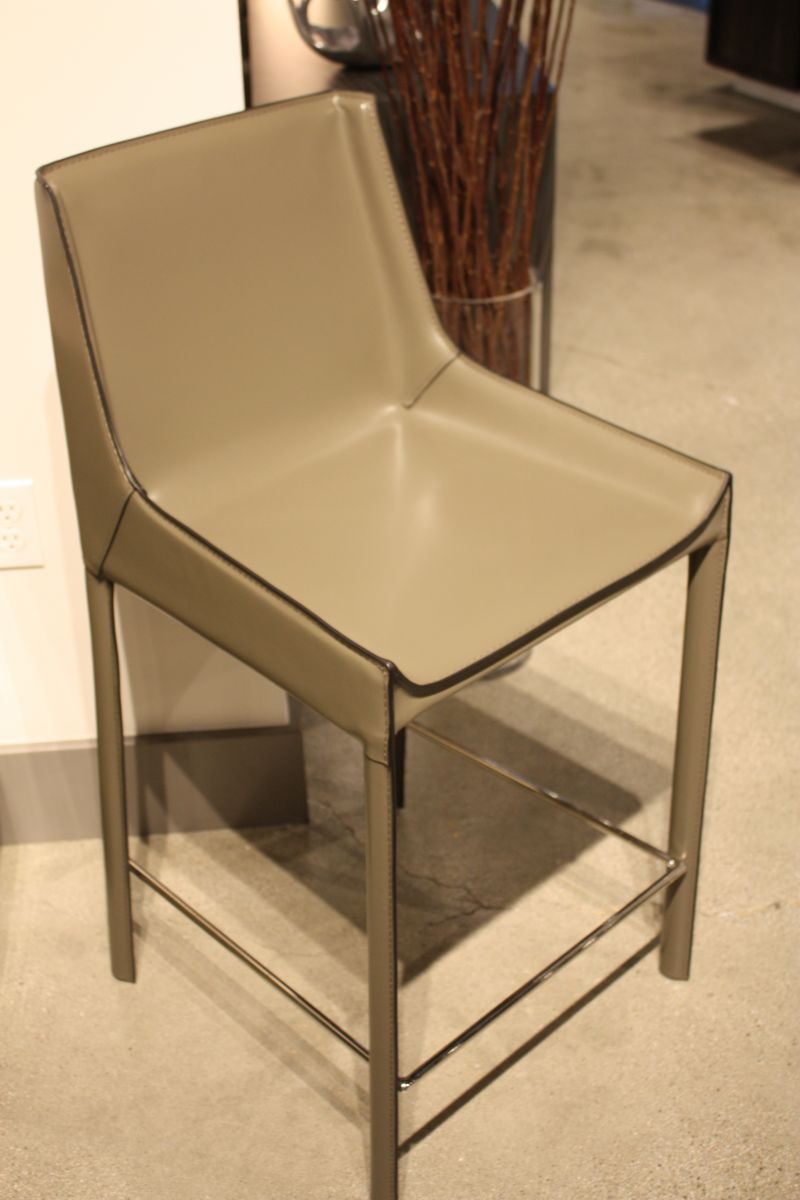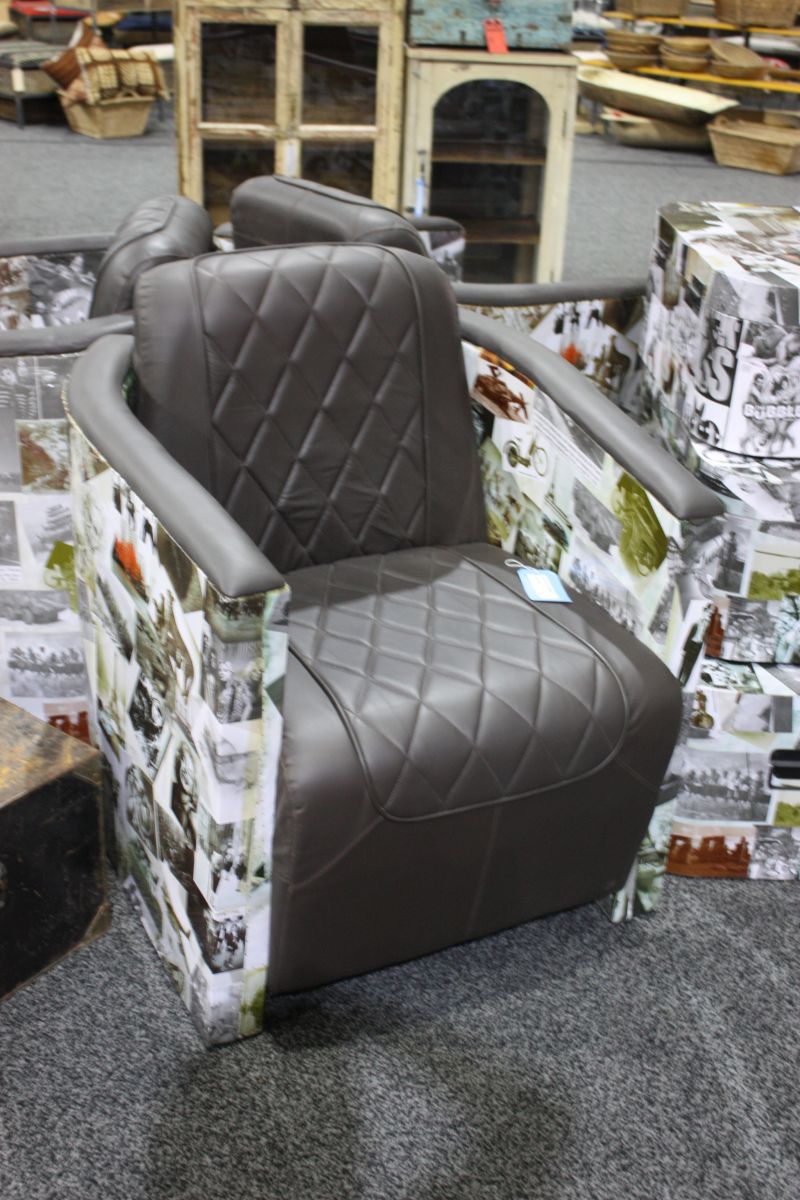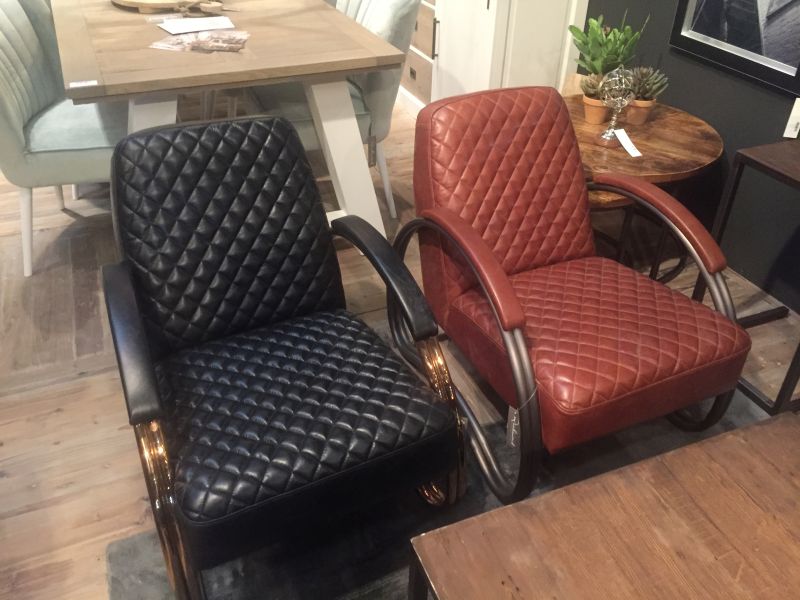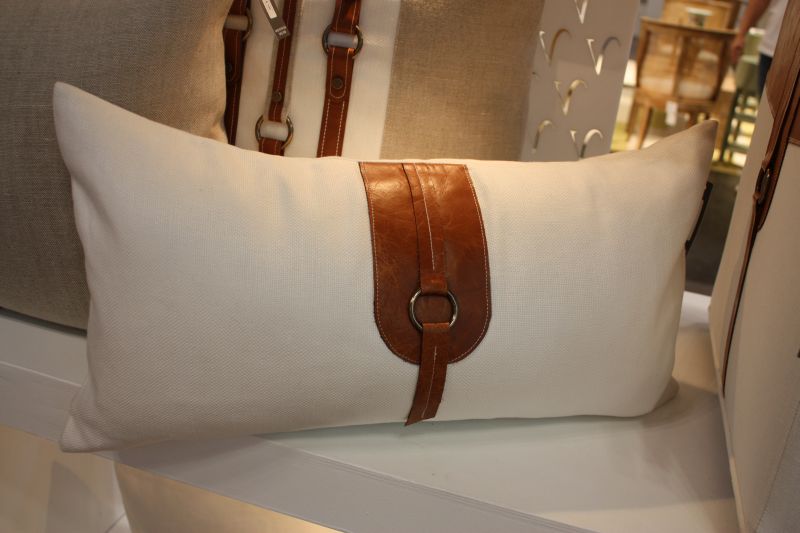Faux Leather: What It Is and When to Use - Avoid It
Imitation leather has increased in popularity over the by several decades for a variety of reasons (which will be discussed subsequently in this article). If you want to larn more about faux leather in home décor, what it is, and when it makes sense (or no sense at all) to utilize it, read on. We're going to encompass all the basics of faux leather to let you lot figure out for yourself how you feel near the fabric.
 View in gallery
View in gallery  View in gallery
View in gallery  View in gallery
View in gallery Definition of Faux Leather:Faux leather is exactly what it sounds like – simulated, artificial, or syntheticleather. Faux leather is the term commonly used in its application on article of furniture (e.thousand., sofas, chairs, headboards), but the textile is past other names as well: leatherette is used in clothing and auto upholstery, and koskin is used in consumer goods.
Reasons to Apply Faux Leather:
 View in gallery
View in gallery Use Reason 1: Cost.
Faux leather is less expensive – often significantly so – than real fauna hibernate.
 View in gallery
View in gallery Utilise Reason 2:Ethics.
For obvious reasons, fake leather is more creature-friendly than real leather. Because it's not the actual hide of animals, clearly. Many people have, for personal ethics reason, an disfavor to existent leather. For these, faux leather is an excellent alternative.
 View in gallery
View in gallery Utilize Reason 3: Different Faux Leather Types.
Faux leather isn't i-and-the-same across the lath. Rather, a gradation of quality and qualities certainly exists amongst faux leather types. The two main versions of faux leather include PVC (hard to clean, not breathable) and types that begin with poly- (due east.thou., polyamide microfiber, polyurethane). Poly- types of synthetic leather are by and large preferable to the PVC types because they are more than environmentally friendly, breathable, and cleanable than PVC.
 View in gallery
View in gallery Use Reason 4: Increased Technology = Even More than Options.
Other non-traditional types of imitation leather are becoming more than popular and used than PVC and poly- types. These include, but are not limited to, natural products such as sea leather from kelp and cork leather from trees (specifically, oak).
 View in gallery
View in gallery Use Reason v: Multifariousness.
Considering false leather is a synthetic (or at least an altered natural) material, the stuff tin can be manufactured in a variety of colors, styles, sheens, and patterns. This is useful when working with a specific and/or tight color palette or pattern scheme.
 View in gallery
View in gallery Use Reason half dozen: Durability.
Poly- faux leather is highly durable, without the natural constraints and weaknesses of real animal hide. Furthermore, faux leather's synthetic-ness allows it to resist cracking over time, dissimilar existent leather, which must be conditioned regularly to continue supple.
 View in gallery
View in gallery Utilize Reason seven: Low Maintenance.
Typically, faux leather is very easy to clean with merely the wipe of a damp cloth. There are generally no pores to soak upwardly stains, which keeps things cleaner as a whole. Faux leather also fades less than its natural counterpart.
Reasons to Avert Faux Leather:
 View in gallery
View in gallery Avert Reason 1: Ages Gracelessly.
Natural leather ages beautifully. Imperfections that come with age and wear only raise the soft, luxe, expensive look and feel of real leather. Faux leather does not have this luxury; it will never wait ameliorate than it looks at its brand-newest state.
 View in gallery
View in gallery Avoid Reason 2: Non-Breathability.
Faux leather is not breathable. Of class, certain versions are even less breathable than others; if this is a business organisation, avert PVC imitation leather at all costs, because information technology is the least forgiving in the breathability section.
 View in gallery
View in gallery Avert Reason 3: Not Environmentally Friendly.
Arguably, real leather is more than environmentally friendly than faux leather because it is a natural byproduct of cows used for beef. In other words, imitation leather is oftentimes an entirely new substance rather than the repurposing or recycling of something that would otherwise be wasted.
 View in gallery
View in gallery Avoid Reason 4: High(er) Puncture Cistron.
Faux leather lacks the natural elasticity or structural forgiveness that real leather has, which means false leather can be punctured or torn more easily than real animal hide.
 View in gallery
View in gallery Avert Reason 5: Non-Hypoallergenic.
Some real leather possesses hypoallergenic traits, which is beneficial. Faux leather lacks any such qualities, making information technology a material more decumbent to allergen-inducing.
Note: The photos contained in this commodity include both faux leather and real leather examples.
williamsonardesclarm.blogspot.com
Source: https://www.homedit.com/faux-leather/
Belum ada Komentar untuk "Faux Leather: What It Is and When to Use - Avoid It"
Posting Komentar